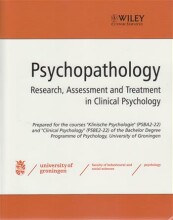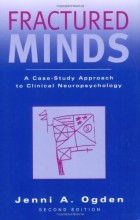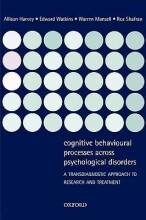Anxiety-Based Problems
10 important questions on Anxiety-Based Problems
Non-associative fear acquisition
Biological challenge tests
Suffocation alarm theories
- Higher grades + faster learning
- Never study anything twice
- 100% sure, 100% understanding
Catastrophic misinterpretation of bodily sensations
Stimulus control treatment
Mood-as-input hypothesis
Exposure and ritual prevention treatments
Theory of shattered assumptions
Emotional processing theory
Dual representation theory
The question on the page originate from the summary of the following study material:
- A unique study and practice tool
- Never study anything twice again
- Get the grades you hope for
- 100% sure, 100% understanding
































